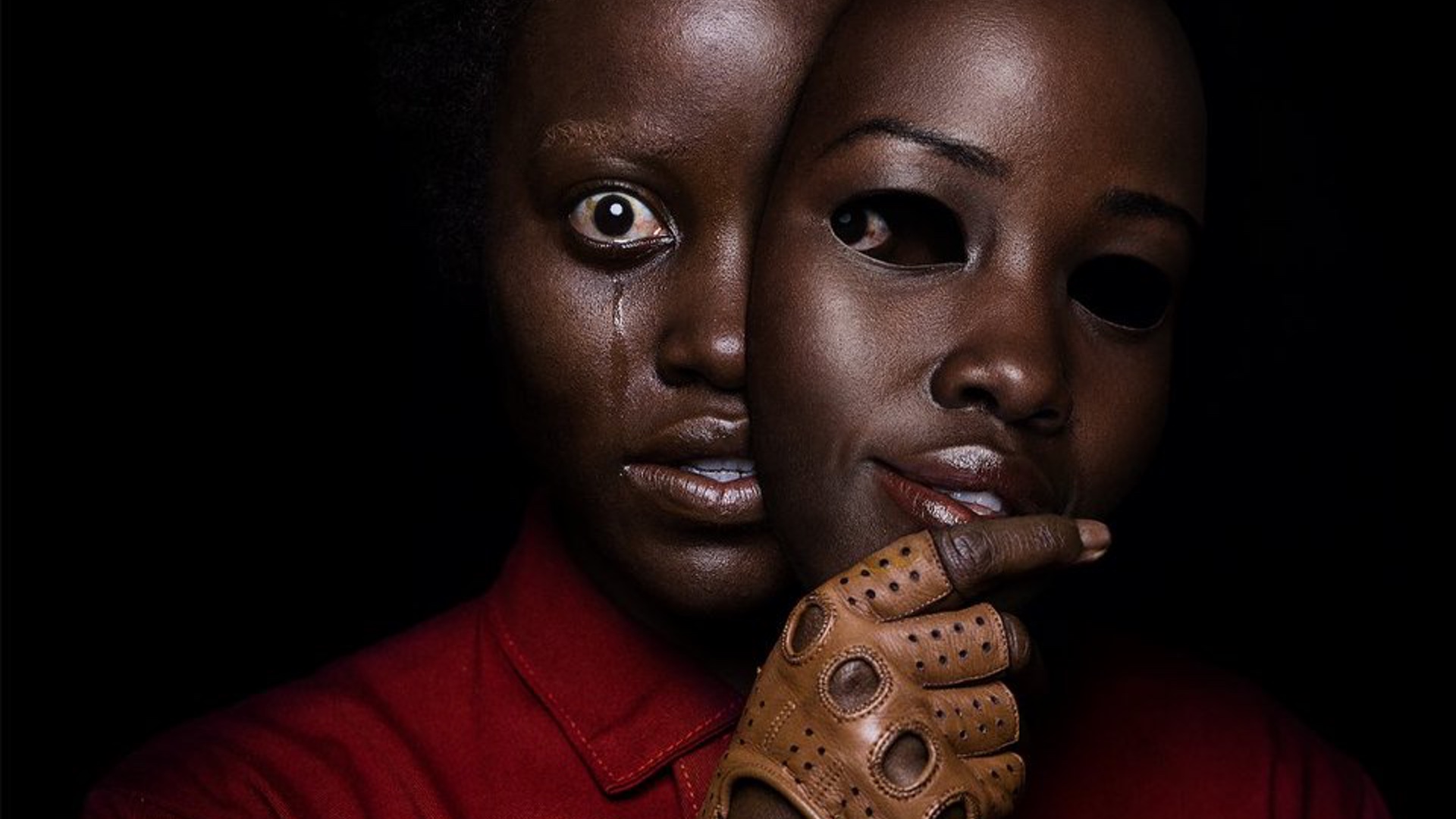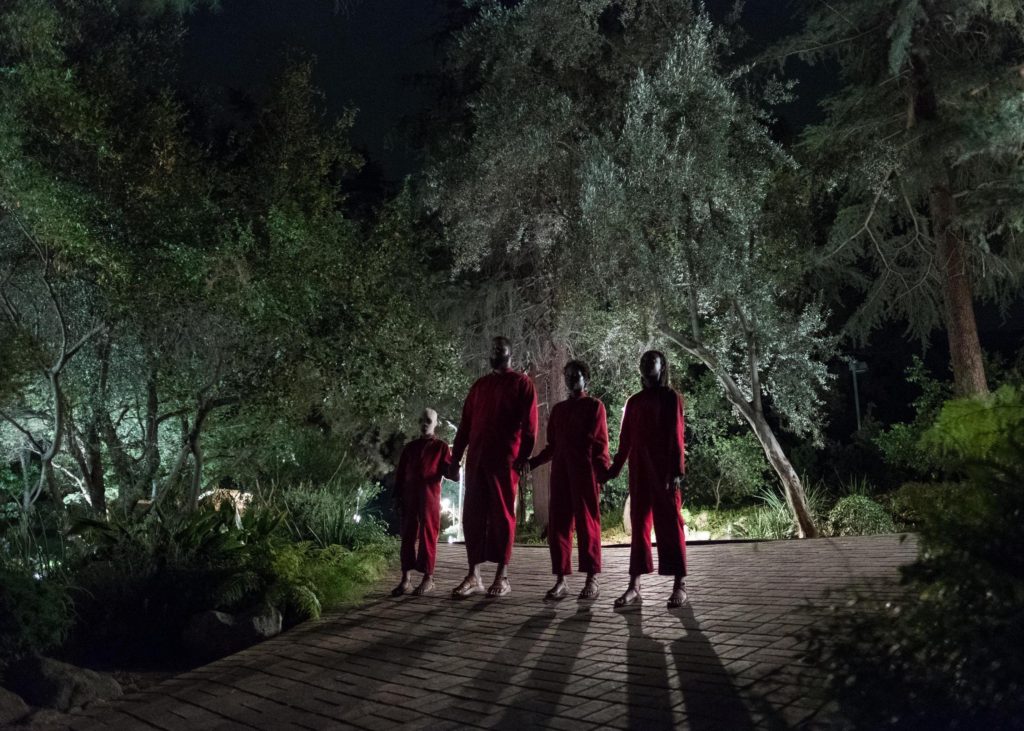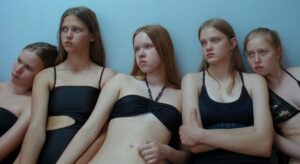
Hollywood’s latest Spring offering is breakthrough filmmaker Jordan Peele’s second directorial effort Us. The writer-director who earned global fame with his crackling genre-bending horror-satire Get Out proves a magnificent student of cinema with his latest Lupita Nyong’o-starrer film. Why? Because the film is so rich in genre textures, and with references that accentuate similar approaches from erstwhile films (but with arguably greater finesse) and, of course, with Peele’s fine knowledge on how to ace a screenplay that isn’t tell-tale yet tells it all.
Us, for starters, is a psychological thriller that also finds its horror moments in a well-balanced space. Following the journey of an African-American family to a beach holiday at Santa Cruz in the Summers, the film is adept at drawing out the differences in characteristics of each family member. The mother Adelaide Wilson (Nyong’o) is incessantly cautious about the trip and even nearly announces to call the trip off. Her apprehension pointing to possible danger in the area owes to an unsettling experience she has had in the same region, three decades ago. The father Gabe Wilson (Winston Duke) is a goofy, everyman dad who is also calculative in his ways to win the attention of an affluent white couple.
The daughter Zora (Shahadi Wright Joseph) is an athlete whom the family desires to groom for the Olympics whereas the son Jason (Evan Alex) has a fascination for masks. In one way or the other, every detail in the aforementioned characterizations exists for a precise cause – that is to contribute to the larger flow of the tale which kicks off when the Wilsons encounter another family in their yard late in the night. The foursome, creepily clad in red jumpsuits, turns out to be the family’s doppelgangers leading to massive chaos that nobody saw coming, except Adelaide but from a broader perspective.
Jordan Peele’s film is no slow-burner as the horror portions quickly take all the room right from the second act. You get the majority of horror tropes – be it jump scares, thumping sound effects, colossal bloodshed, straight-faced children, and idiosyncrasies that the protagonists exhibit as they deal dangerously with the perpetrators. The second act is set to establish the horrifying situation in the town following which we are told about a group called “the Tethered” – consisting of a million clones – who are at war with their real selves living their lives of privilege in the United States. In their very first scene, the doppelganger family announces, “We are Americans.” The town turns into a battlefield with the savagery reaching every nook and corner. The rest of the film is all about how the family unfolds the mystery while protecting each other for good.

Us, after a point, clarifies how it is almost solely about privileges. Unlike many a film revolving around African-American protagonists, the film is less about white supremacy and more about privilege in its elementary definition. It is the story of doppelgangers seeking vengeance over decades of misery as their real counterparts engaged in their bourgeoisie lifestyles. The opening credits roll in the backdrop of a classroom and a herd of caged rabbits of all colours.
The setup starkly reminds us of how the animals are traditionally tortured in laboratory arrangements for various clinical tests. They possess no individuality and have also got zero say in the way their lives pan out eventually – which is also a direct metaphor to the clones and their listless existence. Talking about allegories, Us is enriched with a good number of them wherein some of the clues find completion only in the succeeding scene or even a sequence much later. The most intriguing one has to be the biblical verse Jeremiah 11:11 which, upon Googling, turned out to be a warning that Adelaide and the society at large didn’t tend to – “Therefore thus saith the Lord, Behold, I will bring evil upon them, which they shall not be able to escape; and though they shall cry unto me, I will not hearken unto them.” The film, therefore, uncannily mocks society and its obsession with materialism and worldly pleasures while overlooking the ones who suffer endlessly in desolation.
The last act in Us is the one that catches you unawares with its ballsy twist amped by some exquisite acting by Nyong’o – who, anyway, is on a complete roll-out here. Her expressions, body language, and dialogue delivery are so powerfully on-point that I had already forgotten her Academy Award-winning act in 12 Year a Slave by the time I exited the cinema hall. Equally terrifying is her character’s younger counterpart played to precision by Madison Curry. Winston Duke is fierce and brings colours to Peele’s wit and sarcasm.
ALSO READ: ‘American Honey’ review – an unseen kaleidoscope on North American counterculture
As a horror film, Us delivers on all traditional accounts – be it with the music, editing, or its batty cinematography. Yet, it is when the film embraces certain humane tones in the last reel that it soars to excellence. The gorgeously edited ballet bit that mixes itself with an unnerving expression of violence between Adelaide and her doppelganger, Red, is easily the most artistic take on the film’s core philosophy. As the film closes with a heart-stopping twist, I was not only kicked about the possibility of a sequel but also of Peele’s clarity of vision and sheer guts in balancing his central drama on the tight rope of conviction.
If you ask me to pick an anomaly, I would say that the film takes a couple of watches to assimilate its elements fully – a factor that necessitates the viewers to be sharply attentive. (I have watched the film twice prior to writing this piece.) The story which is interspersed with its own share of genre essentials takes time to develop into a well-rounded unit. Yet, Jordan Peele’s second feature is a worthy follow up to the promise he showed in his debut. Over and above, knowing the references and influences that he incorporates in the least showy manner proves how it is always a great idea to remain a mammoth cinephile even as one conceptualizes some of the biggest feature films made in this world.
Rating: ★★★★
US is now streaming on YouTube.

